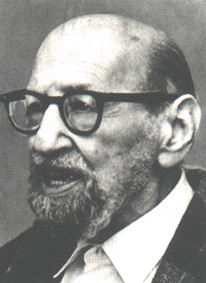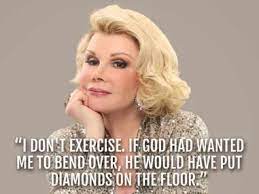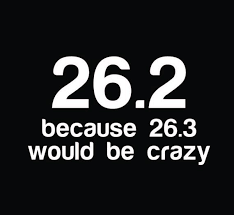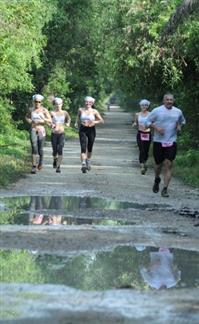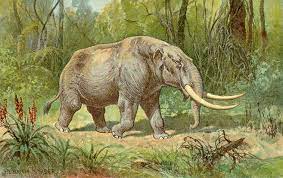As I may have mentioned—repeatedly? constantly? obsessively?—in any number of these 600-somehting columns, I love running. Or, to be more accurate, I love having run. Nothing feels better, to this creaky 65-year-old, than getting the worst of the day over with at oh dark hundred. And now that I have run a bit, wouldn’t you think I’d be entitled to have some guilt-free carbs for breakfast? Me too! Pass the croissants!
Theodore Reik was Freud’s student. Reik was one of the first psychoanalysts in the United States, wrote a ton of books and scholarly articles. To my knowledge, Reik was not speaking specifically about long-distance runners when he suggested that “patients who engage in self-punishing… behavior do so in order to demonstrate their emotional fortitude.”
I am all about emotional fortitude. Whereas many of my non-running buddies agree with Joan Rivers who said, “the first time I see a jogger smiling, I’ll consider it.”
None of my running buddies is smiling when they run ultras. Our favorite bumper sticker reads, “26.2. Because 26.3 would be crazy.” An ultra therefore is defined as anything beyond “just” a marathon.
Great stories afterwards are not a barrel of proverbial monkeys in real time. “Remember the time when we got turned around somewhere around the 28-mile mark in Fakahatchee and there was a six-foot alligator blocking the trail?” is so much more fun than “we have 22 miles to go and we are completely, utterly, and irrevocably lost, have no water, haven’t seen another human for over three hours, and I’m pretty sure I have a fever.”
Which is why I was surprised when one of my running buddies mentioned, “You got a belt buckle for just a 50-miler? I didn’t think they gave buckles for races that short.”
As always, I look for the feeling behind the words. Why would anybody say, “You got a belt buckle for just a 50-miler? I didn’t think they gave buckles for races that short”? None of the following explanations for that remark seems cogent to me:
- Genuine surprise.
Nah. Super Bowl winners earn $130,000; the lowest paid player in MLB gets $600,000; the winner of the Pebble Beach Golf Tournament picked up $1,556,000. Winners of ultra-marathons get a belt buckle. Or sometimes a tee—shirt. Everybody knows that.
There’s no prize money for ultra-runners. There is seldom an article in the paper. Our spouses rarely even show up at our events. (In defense of our spouses, ultra-events are invariably held in places more frequented by over-sized reptiles than people. It’s one thing to shut down a few city street intersections for an hour as thousands of runners do a 5K; it’s another thing altogether to close off an entire metropolis for a complete day so a few dozen runners can cover 50 miles. Plus for maximum stupidity, the ultra course should be mostly uphill.)
So none of us is surprised about getting a belt buckle for a 50-miler. Or not getting one either. The belt buckle or lack thereof is a non-issue.
- Look what big muscles I have.
“Look what big muscles I have” is a low-rent technique used by those with low self-esteem and is related to ultra-marathoners who say, “you ran a marathon? How nice for you.” The implication being that the speaker can run TWO marathons back-to-back which is so much harder than running one marathon as to defy description.
I seldom talk to ultra-runners who say “look what big muscles I have” or “look how far I can run” because there are so few ultra-runners who blather on in these terms and the few there are I meticulously avoid. I don’t know exactly why I run; I don’t have precise insight into why my running buddies run. I do know that we don’t run to impress anyone other than ourselves.
- We’re not good enough. We need to run farther. There’s always another finish line. Fifty miles was humbling and informative this year. I wonder what 100 KM (62 miles) might feel like in 2023.
Now we’re getting somewhere. What’s next? feels right. Runners frequently feel elated at the end of an event, but seldom feel like they have done their absolute best. In my running group we have promised one another not to talk about having run “only” one mile or “only” ten miles or “only” one hundred miles. There is nothing “only” about any of it, thank you very much. Every mile is a triumph or the human spirit. And every mile with a bunch of running buddies is a joy. Okay, every mile with a bunch of running buddies is better than a hot stick in the eye. Marginally better.
Which brings me—“finally” it could be argued—to my insight about parenting for this week. Why are some adolescents so recalcitrant? Why do parents complain about uncommunicative monosyllabic progeny? Why are teenagers in this culture known to prefer the company of peers over having meaningful conversations with their parents?
Could part of the answer have to do with the overwhelming narrative of their parents? You have no idea how hard we had it; there were eight of us living in three rooms; you don’t know how we suffered to make an easier life for you. Not to take anything away from the significant hardships of previous generations, but isn’t it time to let the children have some psychic space to let their own story blossom?
If a teen feels like their accomplishments will always pale in comparison to those of their parents, can you blame them if they stop trying to tell their story? You got a 96 on a math test? Well, let me tell you about when I was in school and math was harder. Textbooks? We never had textbooks! For pencils we used the thigh bones of mastodons who the day before had tried to destroy our village and make soup out of us!
As always, the secret of good parenting is to know who your kids are, to meet them where they are, to accept them for who they are. Theodore Reik died in 1969, so it’s hard to know. But I like to think that one of the great thinkers of 20th century psychology would have agreed that demonstrating emotional fortitude in one thing, but that constantly reminding your kids about it is something else entirely. Let’s stop complaining long enough to allow our kids to find their own path.
